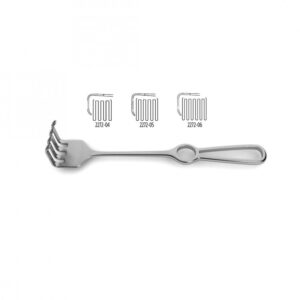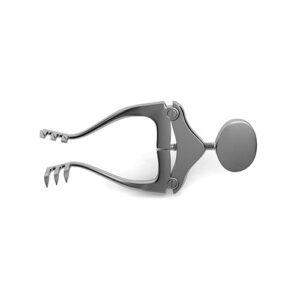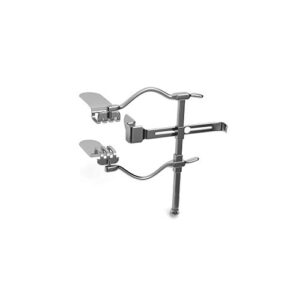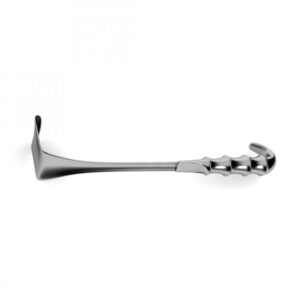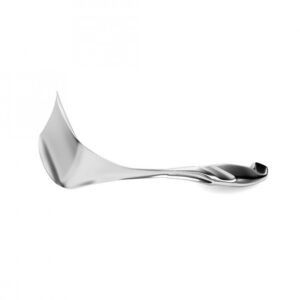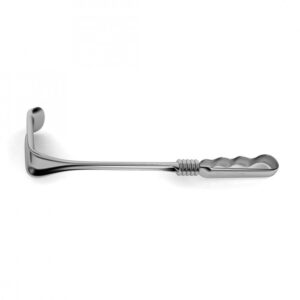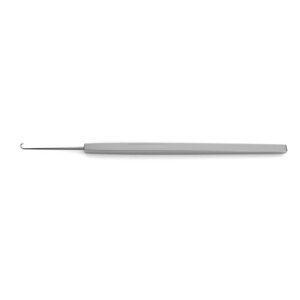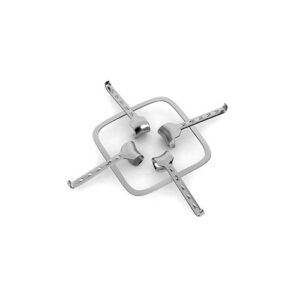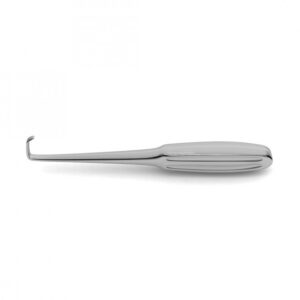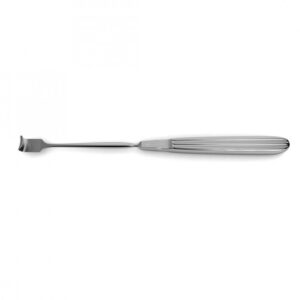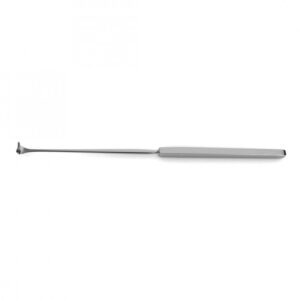Israel Retractor
Jansen Scalp Retractor
Jansen Scalp Retractor
Jansen Scalp Retractor is a handheld instrument that is ideal for the use of lifting the scalp from the skull to provide more accessibility for the surgeon. Surgeries that may involve the need to access this region include cochlear implant procedures. The retractor also contains a device that allows it to be held in place once it is positioned so that the surgeon can continue the operation without manually holding the retractor. Depending on the incision and thickness of the area, this instrument is offered in different sized spreads and prong styles.
Judd-Masson Bladder Retractor
Judd-Masson Bladder Retractor
Judd-Masson Bladder Retractor is available in a complete set that includes a frame with deep swivel blades and one center blade. These different parts are also sold separately in case a replacement needs to be made. This retractor system is popular during urology procedures in order to retract the bladder and provide the surgeon with a better view of underlying tissues and structures.
Kelly Retractor – Grip Handle
Kelly Retractor – Lamb Handle
Lamb handle, 10-1/4" (26.0 cm)
Kelly Retractor has a wide, right angled blade with an overall length of 10 ?" on a lamb style handle. This retractor is recommended to be utilized during deep pelvic procedures and is able to retract tissue in that area. Different blade widths and depths can be obtained for this retractor.
Kelly Retractor – Standard Handle
Standard handle, 10-1/4" (26.0 cm)
Kelly Retractor has a standard, hollow grip, handle with a right angle blade that has a bent crescent-shaped lip. This retractor is commonly used to pull back, or retract, the edges of wounds in order to expose the surgical area. Moreover, it is presented in different blade sizes to adapt to various scenarios.
Kilner Skin Hook
Knurled handle, sharp, 4.5 mm wide, 5" (12.7 cm)
Skin Hook is primarily used during general surgeries when delicate tissue needs to be retracted or pulled back. The sharp hook at the end of the 5" skin hook may also be used in dermatologic surgeries to hold or position the skin. This instrument also contains a knurled handle, which allows a better grip for the surgeon.
Kirschner Abdominal Retractor
Kirschner Abdominal Retractor
Kirschner Abdominal Retractor is available in different sets that all include different sizes of four blades. However, the frame or individual blades may also be purchased. In general, this retractor system consists of a broad frame to provide an unrestricted view of the area being operated, particularly the abdominal cavity. The blades are intended to be applied opposite of each other to provide stable retraction and further improve exposure.
Kutz Hook
Kutz Hook
6" (15.2 cm)
Kleinert-Kutz Hook is a 6" long instrument with a handle that provides a better grip for the surgeon. The hook at the end is curved with a sharp pointed tip in order to grasp delicate tissue. The hook is available in small, medium, or large size to account for different scenarios.
Lahey Thyroid Retractor
Lahey Thyroid Retractor
6.0mm wide, 3.0 mm deep, 7-3/4" (19.5 cm)
Lahey Hook/Retractor is offered in a different number of sharp prongs that have different hook diameters. For this reason, certain types of skin can be retracted depending on the procedure being conducted. The handle of this hook and retractor is knurled, which provides a better grip for the surgeon.
Little Retractor
Little Retractor
12.0 mm wide, 7-1/2" (19.0 cm)
Little Retractor contains a grip handle to provide the surgeon with a better grip while being used during general procedures. For example, during breast surgery, this retractor may primarily be used to unveil the incision and begin to conduct the operation. The different depths this instrument is offered in help to hold different thicknesses of incisions.
Love Nerve Root Retractor
Love Nerve Root Retractor
7.0 mm wide, 8-1/2" (21.6 cm)
Love Nerve Root Retractor is 7.0mm wide and 8 ?" in overall length. This retractor may be useful for providing greater exposure to the surgical area by parting the edges of an incision or holding back tissues or organs. The blade can be straight, angled to 45 degrees, or angled to 90 degrees to accommodate various cases.

